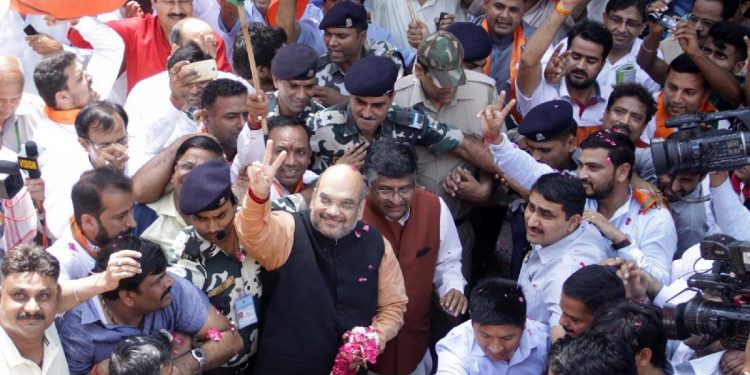New Delhi: As Amit Shah is set to make his first visit to the northeast next month after taking over as Union Home Minister, the land-locked region where development has been hampered by connectivity issues is set to get more focus.
Shah will chair the North Eastern Council (NEC) meet in Guwahati on September 8 where the progress and status of the ongoing and upcoming development projects will be assessed.
With Prime Minister Narendra Modi’s government stressing on the region’s development in a major way, infrastructure projects and telecom connectivity were set to get a get a big fillip.
At an e-Governance conference held in Shillong, Meghalaya, earlier this month, the first ever such conference held in the northeast, poor telecom connectivity was highlighted as one of the major drawbacks in implementing e-governance projects and in delivery of citizen services.
Meghalaya Chief Minister Conrad Sangma, in his speech at the opening of the conference, highlighted telecom connectivity as one of the big challenges for the northeast, in terms of faster implementation of projects.
The deliberations at the 22nd National Conference on e-Governance (NCeG) were aimed to give a big push to Modi’s vision of providing a One Government experience, and easing the citizens’ experience by timely implementation of various e- governance projects.
The conference saw the Department of Telecom’s Northeast Circle make a presentation on the ongoing projects in the region. Several of the projects that had not moved, or needed greater supervision and timely implementation were identified for special focus.
The conference was organised by the Department of Administrative Reforms and Public Grievances (DARPG), in association with the Ministry of Electronics and Information Technology (MeitY), and the Meghalaya government.
Representatives of 32 business houses, including Wipro, HP and KPMG, that were invited to the conference, met members of the North Eastern Council (NEC) to seek advice on how to expand their ventures in the region. “They sought advice on the investments opportunities available and the subsidy schemes,” a source told IANS.
The conference saw 15 state governments make presentations on the successful e-governance initiatives, including improving the public grievance system. The Meghalaya government highlighted the launching of the Meghalaya Enterprise Architecture (MeghEA) portal for delivery of citizen-centric services through a common e-platform.
In January this year, the MeghEA was launched as a pilot project, as part of the India Enterprise Architecture (IndEA) — a single window digitisation solution to provide cashless, paperless and faceless services.
The conference also looked at capacity building, skill development and job creation.
The Electronic Sector Skill Council highlighted that there are 50,000 jobs for digital technicians available in the current year.
“Fifty-thousand digital technicians can be recruited by telecom companies in the next six months,” the source added. It was also highlighted that it would take at least six months to train a digital technician.
The 10-point Shillong Declaration, which included improving e-governance, sharing best practices, having a common software system, is to be implemented by the Central government in consultation with the various stakeholders.
The Shillong Declaration is being circulated to all states for follow-up action. Periodic meetings would be held by the DARPG and Ministry of IT during which the sectors would be identified for follow-up action.
“With regard to the 50,000 job openings as data technicians, the Electronic Sector Skill Council would move quickly to open the skill centres as it takes time to train so many people,” the source added.






































